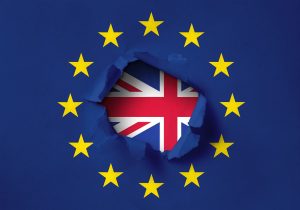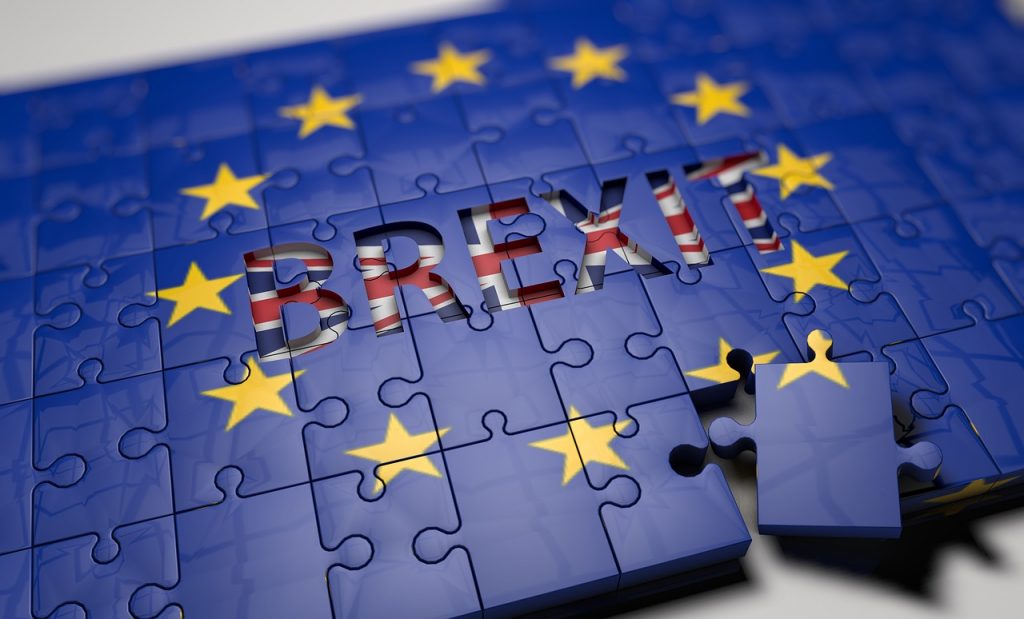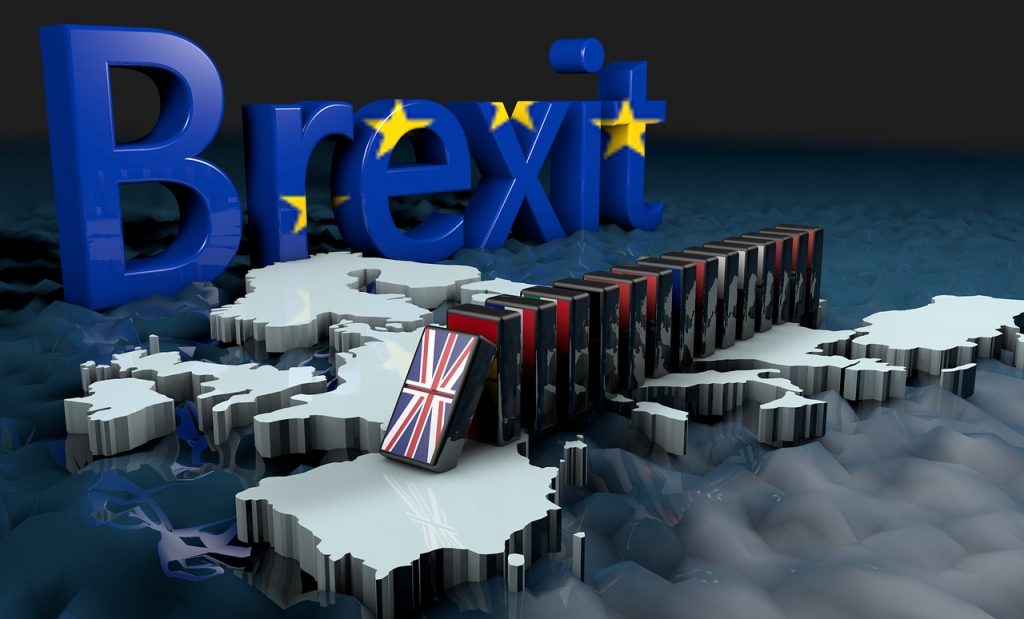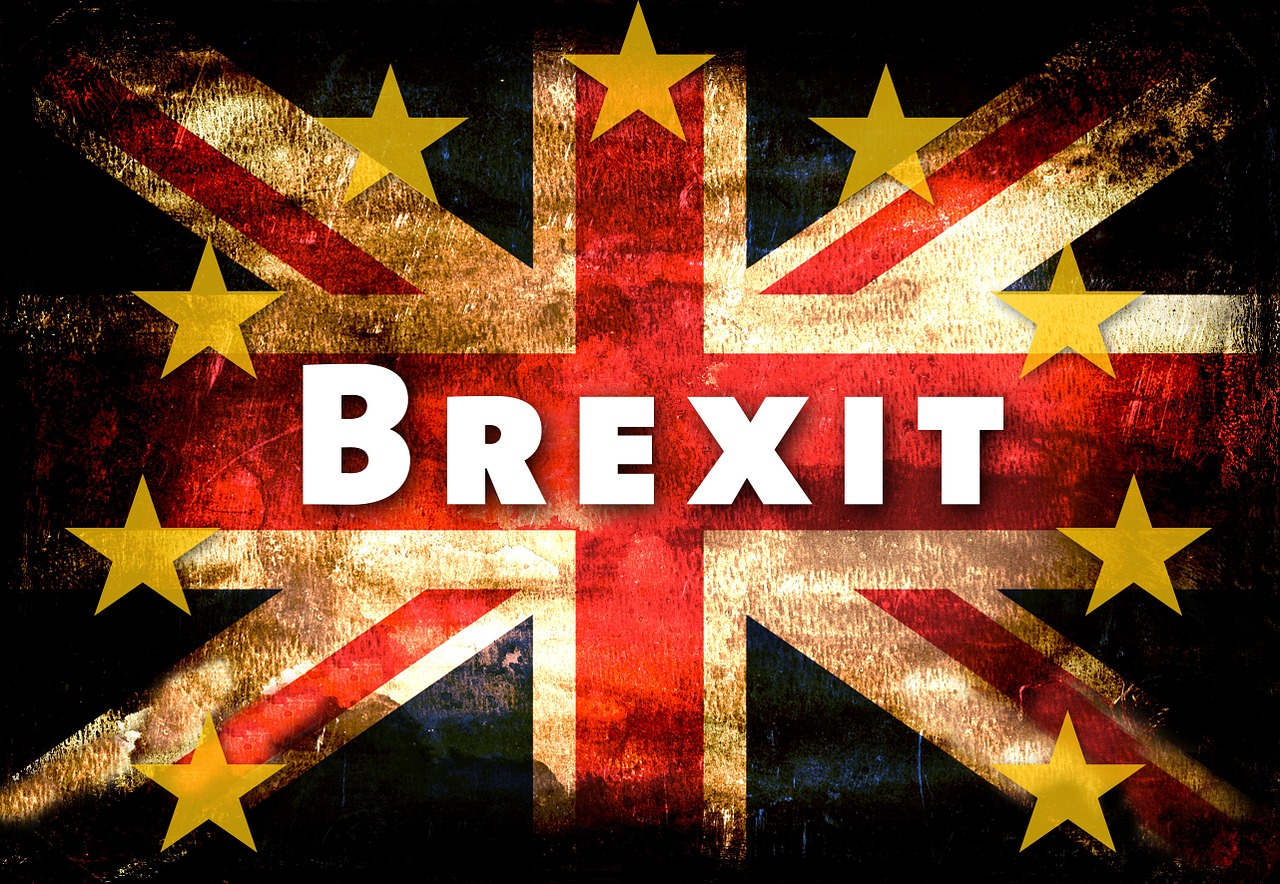British politics is always fraught with drama, with twists and turns in every corner. Every once in a while, a scandal unfolds that sees the current PM lose their job and the country head to an election. Margret Thatcher, the iron lady of British politics lost her job partly due to her obsession with more European Integration and controversial economic reforms. The Iraqi Invasion of 2004 saw Tony Blair lose his job and get branded as the biggest liar of our times. Then came the Brexit fiasco. At a time when everything seemed to be moving so perfectly for one David Cameron, Brexit proved to be his undoing; he resigned in shame and humiliation, with many calling him a traitor and instigator of the present political instability in UK politics. But it did not end there! Theresa May succeeded Cameron and swore in the famously tough phrase; ‘Brexit means Brexit’. Poor May has ever since tried to steer the doomed Ship known as Brexit, in extremely turbulent waters. She’s giving up and is expected to leave her job in early June so that another steward takes control and deliver Brexit.
 But will a new PM necessarily have a solution to this deadlock? What is Brexit, what is this Brexit that has now dominated global headlines and turned the global spotlight on UK politics? What if there’s no progress before the 31st Oct deadline, what will that mean for the ordinary people and for businesses?
But will a new PM necessarily have a solution to this deadlock? What is Brexit, what is this Brexit that has now dominated global headlines and turned the global spotlight on UK politics? What if there’s no progress before the 31st Oct deadline, what will that mean for the ordinary people and for businesses?
What is Brexit?
Brexit is the abbreviation for Britain Exit. In a referendum held on June 23rd, 2016, the UK voted to leave the European Union. This was no small feat. The government under then PM David Cameron tried warning of the dire consequences of leaving the Union, even the US President at the time warned that if the country exited the EU, it’d find itself at the back of the queue in US-UK trade. But the country (52%) went ahead and voted to leave. PM Cameron announced his resignation the following day. For the first time in 30 years, the Sterling Pound hit its lowest against the Dollar. A can of worms got opened; it continues to plague the country to date.
When will Brexit happen?
The Brexit vote marked the beginning of complex and lengthy discussions between Britain and Brussels. Just like a divorce, both parties had and have to part amicably. What happens to UK citizens living and working in the EU, and vice versa? What happens to pre-existing agreements and commitments (UK owes the EU about £39bn)? Deadlines have been set and missed, the EU continues to play hardball and things don’t look very promising. A no deal for the UK appears increasingly certain. We’ll all have to wait and see how things unfold. In the meanwhile, ordinary people, business owners, and workers are most worried about the repercussions of a no deal at all.
Here are 35 No Deal Brexit Consequences;
- Food security; strange as this may sound, one of the most immediate consequences of a no Brexit deal will be felt in your kitchen. Around 30% of the fresh produce, vegetables, dairy products and fruits consumed in Britain are imported from the EU. EU tariffs will be slapped on every agricultural product being imported to Britain. Even Super Markets have already warned that shelves may run dry if the country ends up with a no deal.
- Travel restrictions; currently, Britons don’t require a passport to travel or leave in some EU countries under the so-called Schengen areas. With no deal, Britons can expect more frequent delays and longer paperwork when traveling to a country within the EU. You’ll need to double check your Visas and Bank Cards, and other personal documents before traveling across the EU.
- Healthcare; medicines and medical equipment that come from the EU will also be affected in case of a no Brexit deal. The NHS says that they’re doing all they can to ensure that any delays or interruptions won’t happen. Yet, the Royal Pharmaceutical Society has already warned that pharmacists are already struggling to import basic medicines like antidepressants, painkillers, and such.
- EU Citizens in Britain; EU citizens living in the UK will have to apply for what’s known as ‘settled status’. This is the only way they’ll be able to guarantee their rights and those of their families. It’s estimated that around 3.8 million citizens of the EU are currently living, studying, or working in Britain. Over 600,000 EU citizens have already applied for settled status so as to continue living and working here even if the UK
- UK Citizens in the EU; the government has already asked British citizens wishing to travel in the EU to double check their Paperwork. You’ll still be able to fly to EU countries using your favorite Airline. But expect longer queues at major airports linking you to the EU, like London’s St. Pancras International. If your Passport is about to expire or has a few months left, you’d be better off renewing it before a no deal Brexit.
- The Education Sector; there were around 147,000 students from the EU studying in the UK as of Jan 2018. They contributed £5.1Billion to the local economy and hundreds of thousands of Jobs. Some recent studies have indicated that some teaching staff from EU countries are already making plans to leave the UK in case of a no deal Brexit. If there’s a major fallout between Britain and Brussels, many educational institutions will be forced to hire and recruit new teachers, tutors, professors, and so on.

- Security matters; currently, Britain is a part and parcel of NATO. There is strength in numbers and NATO is a collective body of numerous EU nations. Ironically, Britain is a huge pillar in NATO and this is one area our EU brothers are very aware of. Both Brussels and Britain agree on the need for closer security cooperation and thus, even with a no deal, Europe’s Security will always be guaranteed.
- Tourism sector; take for instance the year 2017; 72% of all tourists that visited the UK were from Europe. The numbers may have slightly gone up or dropped by now. But clearly, visitors from the EU are still the highest number compared to America, Asia, and the likes. A messy no deal Brexit will clearly cause trouble to our tourism sector. The sector could be staring as losses to the tune of ‘billions’ in case of a no deal Brexit.
- EU Laws; the principle of legal certainty is a vital cog in the wheels of any legal system. Britons traveling across any of the 27 EU nations will need to sufficiently acquaint themselves with the Acts and laws of each. Most Britons feel that the EU has imposed their laws on the UK. In litigations or cases pertaining to cross border matters like Child support or adoption, the EU legislation will carry more weight than any contrary UK legislation.
- Migrant workers; if there’s a controversial EU law that most Britons frown upon, it is the one pertaining to child benefits of migrant workers. Currently, EU citizens who work in the UK are eligible to claim child benefit even when their children don’t live in the UK. In the event of a no deal Brexit, you can expect this legislation to be an early casualty.
- Movement of labor; the main reason voters voted for Brexit was because of migration. By being EU members, the UK government didn’t have a say in the number or type of migrants from the EU coming to look for work. While leaders of Brexit have passionately called for tougher measures to restrict migration, the path ahead is difficult. Norway and Switzerland aren’t EU members, but they too cherish the free movement of labor. Thus, a no deal Brexit won’t mean Zero migration.
- Housing market slump; crashing out of the EU without a deal could cause a slowdown in the housing market, some experts say. Mortgages will remain low as key players in the sector observe an unfolding scenario of a no deal. This could be the perfect time for you to buy a property before mortgage rates are hiked once the uncertainty fades away. If there’s a no deal, property prices in London may fall by up to 10%.
- Data roaming; be ready to dig deeper into your pocket for your mobile phone data roaming charges, in case of a no deal Brexit. It’ll be more expensive using your mobile phone in the EU once data roaming charges are brought back. You can read everything you need to know about the roaming charges here.
- Extra delays in ports; the government via the Transport Secretary, Chris Grayling, has admitted that disruptions in freight traffic should be expected. Kent, Dover, Calais and other points where goods enter or exit the country will face more stringent customs checks in case of a no deal.
- Delays on motorways; between 6000 to 10,000 trucks Cross through the Channel daily. Most checks are done on the French side and in case of a no deal, the queues and delays are bound to become longer. Businesses could be the worst affected especially those transporting fresh and perishable products.
- The Premier League; the English Premier League is watched by millions across the world. In fact, no other premier league in any sport is as popular. But unknown to many, these clubs are owned by Malaysian, Russian, Chinese, and Gulf billionaires! Apart from investment uncertainties, a no deal Brexit could also affect the rosters of players if the movement of people is curtailed. Mind you, over 40% of the league’s players are non-British.

- Trade wars; without the bilateral trade deal with the EU, Britain will result in following the laid out rules by the World Trade Organization. British exports will be subjected to the same customs checks and tariffs as other non- EU countries. The abrupt end to the zero-tariff trade that is in place will lead to hiked prices and extreme shortages. Brussels will push to maintain the integrity of the single market and may impose a customs control on the Irish border.
- Northern Ireland; the dilemma with the Irish has become a heated debate witnessed within the negotiations for the Brexit deal. Although both Britain and Northern Ireland maintain there will not be a hard line border, a no deal for Brexit will surely attract pressure from Brussels. Crashing out of the union may prove problematic for Britain to maintain an open border with an EU country according to Dublin’s Economic and Social Research Institute.
- Aviation Industry; the UK has the largest aviation industry in Europe with a key geographical position in the network. 80% of all North Atlantic flights pass over British or Irish controlled airspace. Changes to the relationship with Brussels could potentially have huge implications on customs, air security standards, ground operations of UK airports and future air service agreements with EU member states. Budget airlines across the EU may be restricted as a result of falling off the European single aviation area.
- Banking Sector; the financial services contribute to about 7% of Britain’s GDP and currently employs over 1.1 million people. Uncertainty over the British fallout with the UK has led to the major banks threatening to leave Britain if a no deal is reached. There has been a concern for some banks that could move their headquarters from London to Frankfurt, Luxembourg and Dublin.
- Automotive industry; Experts in the LSE estimate a drop of up to 12% in car production in the UK following Brexit. The over 800,000 workers in the industry could be the worst hit with massive layoffs in the way. Toyota, Ford and Rolls Royce have made statements on cutbacks if the UK finally left the EU. It would be a huge hit to the over 15 billion industry.
- Agriculture; the agricultural sector may have a win and loss effect on the British farmer. Farmers currently enjoy a trade and tariff barrier-free market for their produce. They also enjoy over 3 billion per year in subsidies through the Common Agricultural Policy. A no deal may have consequential distortions to trade and competitiveness. On the other hand, the farmers will be free of the strict EU regulations leading to a growing number of farmers supporting the ‘leave’ campaign.
- Fishing; the Common Fisheries Policy provides a framework of the different quotas on how many fish can be caught. It has been long considered a thorn in the flesh for British farmers. A no deal will affect fishing in non-UK waters withdrawing the rights while the fishermen lose out on the subsidies. The government will be forced to fully subsidize this sector through state aid.
- Money Markets; A crash out of Brussels will see the London Bourse no longer recognized as an EU-regulated market and amendments to fund documentation may be required. In addition, the securities listed on the LSE need to be ascertained that they can still be bought. The UK may lose its MiFID status and UK investment managers will have to undergo some approvals before continuing marketing within the EU.
- Technology; There may be a potential fall out between Britain and the EU over data protection laws. With the recently adopted General Data Protection Regulation, the UK may seize the opportunity to loosen the toughen data protection rules in the EU. This may place them at a competitive advantage for the UK business. Questions have also arisen over the free flow of data between Brussels and the UK.
- Average income drop; The Centre for Economic Performance indicates that the higher tariffs and fall of non-tariff barriers to trade could lead to a drop in Gross Domestic Product for more than 2%. This translates to a lower income for the British populace. Analysis by Credit Suisse predicts a potential drop of 1-2% of GDP due to repressed business confidence, tighter financial constraints, and higher inflation rates.
- Visas; EU citizens in the UK may face difficulties accessing working and traveling visas particularly if the UKIP immigration policy is adopted. A hard Brexit will mean that London does not have to follow the EU immigration law on family members’ rights within the EU member states. Family members would fall under general UK immigration rules.

- Financial Settlement; The UK continues to participate in the EU’s budgets in 2019 and 2020 up to the end of the current EU budget cycle. The HM Treasury has estimated the total payment to the EU to stand at around 35-39 billion Pounds. The estimates have drawn sharp divides within the parliament with the Public Accounts Committee indicating of overestimation. Should Britain fall out of the EU without a deal, the financial implication could be consequential for both parties.
- Construction industry; Gleeds, a construction, and property consultancy firm, indicates that 66% of the industry professionals feel that the Brexit will have a negative impact on the industry. The concerns arise from the shortage of skilled labor which will be exacerbated by immigration statuses of non-UK citizens. Gaps in the skill market, regulatory frameworks and supply chain conflicts contribute to issues raised among construction firms.
- Research funding; with less specialized EU staff left in the UK universities, vital research programs may be placed under jeopardy. Exchange programs among different Universities and fellowships may also be affected. Britain has been one of the largest recipients of research funding in the EU. A harsh break up with the European Union will result in job cuts for many within the industry.
- Environmental and wildlife protection; 80% of the UK’s environmental laws are adopted from the European Union. A no deal may have a far-reaching impact on a number of environmental issues such as air pollution, fracking, bees and wildlife protection. Nature groups have warned of gaps within the laws and protections for nature. Over the past, Brussels has effected actions over the emission of toxic gases and the creation of marine protection zones within the UK.
- Film industry; a crash out of the EU will have a significant impact on Britain’s screen sector. The end of free movement in and out of the EU will weigh heavily on film making. The freedom of movement of people and equipment between filming locations may prove difficult and expensive if the UK leaves the EU. London will also fall off the European Convention on Cinematographic Co-Production in the EU.
- Small and Medium Enterprises; A recent research from the Harvard Kennedy School shows that a ‘No deal’ Brexit will result in over 7900 SMEs and companies winding down. A No-deal would be the worst possible outcome of the Brexit. The customs union and single market rules from the EU would create hurdles from the budding companies leading to their closure. A No deal would curtail frictionless trade, access to labor and aligned regulations for the SMEs.
- Culture; the various European cultural programs such as European Capital of culture will be one of many the UK will not be part of. Prizes such as EU prize for Contemporary architecture will no longer be available. The EU contributes over 40 million a year to the creative industry and museums. With the fallout with Brussels, Britain will also miss out on it.
- Intellectual property concerns; Brexit will have an effect on registered European Union Trade Marks that have been afforded in the UK. The trademarks will require to be transitioned to UK trademarks and designs. The EUTMs face the danger of being canceled following an exit by the UK. Patents, copyrights and database rights registered under the EU by UK-based companies will require to be harmonized.
Frankly, the situation and debate surrounding Brexit is so fluid that each new day new developments are coming up. By the time of writing this article, two dramatic events have occurred in a span of fewer than 78 hours.
- First was the dramatic and emotional speech given by PM Theresa May as she announced her resignation. It was quite a spectacle seeing Britain’s second female PM in history choke in her words as she bid goodbye to Downing Street.
- The second event is the recently concluded EU parliament elections. The Brexit Party has won more seats than the Tories and Labour, which tells you that millions of voters are tired; they want Brexit and nothing less!
- Interestingly, Nigel Farage’s party has won so many seats across the UK that it’ll now have the highest number of elected members from a single country (all the 28 EU nations were respectively electing MPs). His party’s win is like an earthquake that has shaken the Westminster political establishment and the party’s leader, Nigel Farage still has a chance of becoming the next PM.
- His political stand is clear; he is one of the most ardent supporters of an independent Britain free from the EU.
The future of the EU looks shakier than before. This is especially so with the rise of right governments in Europe that want to have more control over their countries. Here in the UK, the prospects of a no deal Brexit are so high. As a business owner or citizen of this country, it makes sense to sufficiently prepare yourself for a scenario where Britain walks away without a deal!
Author Profile
-
I'm an SEO Analyst and blogger outreach expert at ClickDo Ltd. & Expert at Building High Authority Local Citations, Also, I help Business Owners in the UK by flooding more Leads to their Business by ranking their website on top of Google for potential Keywords.
I'm an author and enjoys writing UK business blogs to help promote UK businesses online. You can also contact me for guest posting services as I manage over 100 top UK business websites. Check out my personal blog - Dinesh Kumar VM
Latest entries
 BusinessOctober 17, 2024Unlocking the Power of Real-Time Data: How Vehicle Tracking Transforms Business Performance?
BusinessOctober 17, 2024Unlocking the Power of Real-Time Data: How Vehicle Tracking Transforms Business Performance? BusinessSeptember 24, 2024Scaling Up: Exploring the Popularity and Reliability of IT Staff Augmentation
BusinessSeptember 24, 2024Scaling Up: Exploring the Popularity and Reliability of IT Staff Augmentation Trading strategiesSeptember 17, 20241:500 Leverage in Forex, Overview & Trading Tips
Trading strategiesSeptember 17, 20241:500 Leverage in Forex, Overview & Trading Tips CryptocurrencySeptember 17, 2024AI and Quantitative Trading in the Crypto Market
CryptocurrencySeptember 17, 2024AI and Quantitative Trading in the Crypto Market





